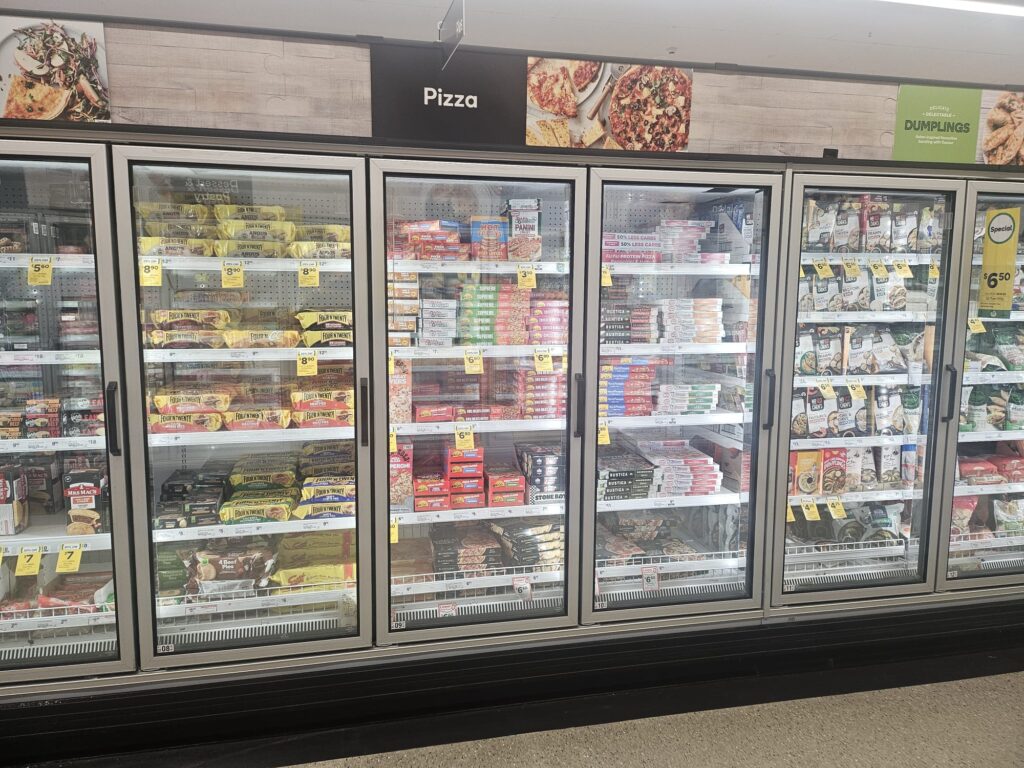[ad_1]
Chipotle is tests out an autonomous kitchen assistant, Chippy, which delivers a robotic solution for building chips in places to eat.
Courtesy: Chipotle
The lengthy lunchtime lines at Chipotle Mexican Grill waiting around to get could provide as a superior metaphor for Chipotle’s technique to investing in innovation: nevertheless you might have to wait around a bit for final results, the taco and burrito brand is fostering know-how from all around the entire world that is heading to modify the way restaurants run and customers think about food stuff.
It is not accurately a new sentiment from the business. Chief engineering officer Curt Garner notes that Chipotle, influenced by Uber, to start with went electronic in 2016 with its app and then rapidly constructed house at just about every of its restaurants so workforce wouldn’t at any time have to choose involving serving consumers standing in entrance of them vs . all those who purchased digitally. But investing in world-altering innovation took on new this means for Chipotle in April when it introduced Cultivate Subsequent, its $50 million venture fund meant to soothe the margin-squeezing pressures of the cafe sector, tackling worries from labor shortages to growing foods expenditures and enticing clients to commit more time feeding on in their stores.
“We’re contemplating about how to increase and scale the corporation as a result of a large amount of lenses,” said Garner, noting that the fund represents an prospect for Chipotle to evolve from basically adapting to technological alter to making it. “There’s restaurant progress, there is certainly escalating and scaling our electronic enterprise and there is also continuing the mission of cultivating a far better earth and altering the way folks believe about in which their foods arrives from.”
Chipotle’s new venture fund could be a beacon for traders as the cafe sector continues to struggle important financial headwinds. Analysts will be searching for concrete examples of Garner’s first two points — new tech that promises to streamline and expand Chipotle’s operations — when Chipotle reports its second quarter results on July 26.
Chipotle has typically posted beneficial growth quantities considering that 2016 when the chain was dealing with food security scares — it seasoned near double-digit systemwide sales progress concerning 2017 and 2020, in accordance to Morningstar. But it’s not immune to present day broader sector downswing. When consensus estimates are calling for Chipotle to article 2nd quarter earnings of $2.24 billion, up just about 19% calendar year above calendar year, and quarterly earnings of $9.04 per share, up 21%, its stock is down far more than 20% yr-to-day.
“The difficulties is on the margins side,” said Sean Dunlop, equities analyst with Morningstar.
Although Chipotle and the restaurant sector have viewed a slight softening of equivalent store revenue growth, the mounting prices of food items, labor and utilities put together with a development of consumers venturing out of their homes considerably less “is pinching Chipotle’s P&L,” Dunlop said, noting that the squeeze will most likely last into 2024. Proprietor-operated chains like Chipotle and Starbucks may well also be faring even worse than franchised enterprises because “they bear all those people under-the-line prices by themselves,” he extra.
One more possible hurdle for Chipotle’s inventory: unionizing staff. In early June, a Chipotle Mexican Grill shop in Augusta, Maine, submitted a petition for a union election, the initially of the chain’s dining places to join the latest organizing force throughout the U.S. that has swept throughout companies from Apple to Starbucks.
A self-driving shipping robot supplied the spark
Like every other VC investor, Chipotle is wanting to get in on the ground ground of early-phase corporations producing groundbreaking technological innovation. Not like common VC corporations, nevertheless, Chipotle is just not searching for a particular return on expenditure about a individual timeframe.
“Results for us is multifaceted,” Garner said. “It really is a opportunity for us to strengthen our working enterprise and that advancement could turn into greater than what we would attain in conditions of strict monetary returns on funds.”
The venture fund notion arrived previous 12 months immediately after Chipotle invested in Nuro, a SoftBank-backed startup that makes use of self-driving know-how, in Priuses and tailor made automobiles, to deliver groceries and other merchandise.
Domino’s assessments Nuro, an autonomous automobile for pizza shipping in Houston.
Source: Domino’s
“We located a whole lot of traction there in conditions of synergies of lifestyle and concepts and innovation and we questioned if there was an possibility to extend our influence and come to be an accelerator of these concepts,” Garner instructed the Silicon Valley-themed Sand Hill Highway podcast in Could. Chipotle’s executive team observed itself staying pitched all sorts of tips but had no official funnel to sift by way of alternatives either as a provider or husband or wife, explained Garner.
Record venture investment in cafe technology — together with components and program for restaurant administration, bookings, staffing, cell payments and inventory administration — achieved more than $4 billion in 2021, and it is on observe to defeat that this calendar year. Hundreds of firms have expressed desire in Chipotle’s first spherical, which targets seed resources to sequence B startups.
Garner claimed Chipotle will announce its to start with picks in the upcoming few months. Marketplace watchers say to be expecting Chipotle’s dollars to abide by field agony factors.
“Right after the pandemic a lot of folks are generating investments to modernize and increase customer encounters and performing items to just take labor prices down and out of the procedure,” reported Eric Symon, vice president of the Organization System Innovation Middle at Panasonic Method Methods Company of North The us.
Symon is viewing demand for answers like Panasonic’s temperature-controlled clever food stuff lockers that discourage take-away theft and blend-ups, which tie up staff who have to remake orders. He is also looking at demand for artificial intelligence apps to assist cafe supervisors forecast active moments of day so they can improved staff members their shops.
To that stop, Chipotle has by now invested in an AI-driven labor administration software that analyzes dozens of variables like weather conditions and readily available promotions to figure out additional economical restaurant staffing. It is also rolling out an AI-dependent instruction application, which helps restaurant personnel to shift up the ladder to management.
The labor of an automated tortilla chip maker
When it will come to the variety of innovation that Chipotle is hunting to foster, Garner nods to Chippy, a robotic tortilla chip maker that will save time and labor prices by dealing with repetitive kitchen area jobs.
“It started with, ‘how do we take out some of the dreariness of a worker standing at the fryer and frying chip basket immediately after chip basket?'” Garner claimed, noting that Chippy will be piloted at a single Chipotle locale later this year the moment it gets qualified as foodstuff harmless. “It will allow our crew to devote extra time performing culinary assessments, serving friends.”
Chippy might assist Chipotle deal with the industry’s labor lack, but eventually what the organization is aiming for with its venture fund is modifying the world’s foods programs.
“When you feel about the environmental alternatives for how food is sourced and how it is really served, those people are big places for technological innovation to be accelerated and enabled,” Garner mentioned, precisely pointing to environmentally focused farming techniques coming out of Europe. “Attendees want to understand the provenance of their food stuff and experience great about what they are purchasing for.”
Acquiring into sustainable farming tactics will allow for rapid assistance eating places makes far better affordability of ingredients, a assured provide, and the possibility to present buyers anything special vs. opponents, mentioned Sanjeev Krishnan, chief investment decision officer at S2G Ventures, an 8-year-outdated venture fund devoted to supporting sustainable and healthy food stuff techniques.
“Extra appealing is that these rapid provide places to eat can provide an period of biodiversity into our food program — ours is dull,” Krishnan claimed. “Just 15 crop plants present 90% of the world’s food stuff strength ingestion, with a few — rice, maize and wheat — making up two-thirds of this,” he extra.
Expenditure in non-meat protein products has ballooned around the earlier handful of several years, with Chipotle, McDonald’s, Burger King and Dunkin all recently trialing burger and sausage substitutes on their menus. Lots of brand names are extending plant-based mostly experimentation to other merchandise groups, and PitchBook Information tracks enterprise funding in a newish class: 3D bioprinting, which involves printing residing cells, progress aspects and other biomaterials to create total lower cultivated meat, according to the firm’s Q1 Foodtech Report. 3D food stuff-printer corporations logged $185.7 million in VC funding final calendar year, it claimed.
When it arrives to investing in better-risk emerging technology, it may perhaps support to assume of Chipotle’s part as akin to other companies’ R&D charges, according to Dunlop.
“Practically nothing is off the desk,” Garner said. “Just one of the factors that [CEO Brian Niccol] has brought to our society is this idea that we have a ton of satisfaction in what we do and quite minimal ego. We can be very pleased of what we’ve accomplished — like plant-based mostly chorizo — but if anyone out there has a great thought, we want to hear from them.”
[ad_2]
Supply link


